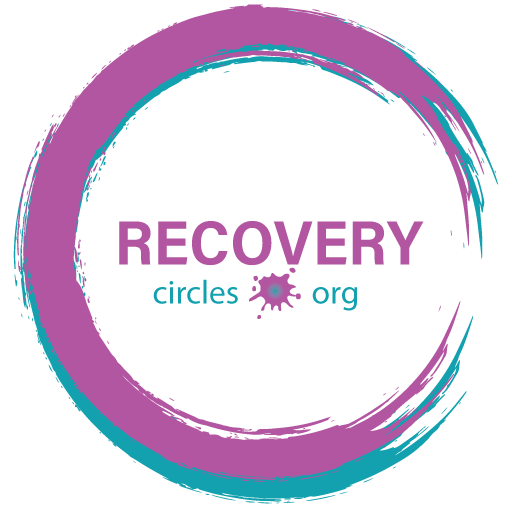Dual Diagnosis
Contact us today or keep reading to learn how Sober House Philadelphia, in partnership with trusted providers like The Heights Treatment, supports individuals facing both substance use and mental health challenges through compassionate, personalized care.
You can also call us at (267) 412-3258
Featured In





“
I finally feel like I have a future. These people believed in me when I couldn’t.
– John L.
“
What I found here wasn’t just recovery housing in Philadelphia, it was a group of people who truly cared if I succeeded. They held me accountable and helped me rebuild.
– Tony F.
“
As a single mom, I needed a place I could trust. This affordable sober home in Philadelphia gave me that and more. I’m forever grateful.
– Jasmine T.
See more of our success stories
Many individuals silently struggle with both substance abuse and mental health challenges. While it may seem uncommon, dual diagnosis—the presence of both a mental illness and a substance use disorder—is more widespread than most realize. These conditions are deeply intertwined and require a thoughtful, accurate diagnosis along with professional care from experienced specialists.
If you or someone you love is facing a dual diagnosis, Sober House Philadelphia is here to help. Through our partnership with trusted treatment providers like The Heights Treatment, we can connect you with the support and clinical care you need to begin your path to recovery. Don’t hesitate to reach out—your journey to healing starts here.
You can also call us at (267) 412-3258
What Is Dual Diagnosis?
Dual diagnosis refers to the condition in which an individual is experiencing both a substance use disorder and a co-occurring mental health condition. These disorders can take many forms, and their combination often complicates diagnosis and treatment. That’s why organizations like the Substance Abuse and Mental Health Services Administration (SAMHSA) and the National Institute of Mental Health (NIMH) continue to conduct vital research to better understand why these conditions often develop together.
Treatment centers across the country are working hard to develop effective, evidence-based approaches for individuals with dual diagnoses. These often include psychosocial therapies, which address both the mental and emotional aspects of recovery. Since every individual’s experience is different, treatment plans must be personalized. For example, a person might be coping with substance use alongside conditions like bipolar disorder, borderline personality disorder, post-traumatic stress disorder (PTSD), or eating disorders—all of which can complicate recovery if not treated simultaneously.
At Sober House Philadelphia, we recognize how complex dual diagnosis can be. Through our partnership with expert providers like The Heights Treatment, we ensure residents have access to specialized care tailored to their unique needs—helping them take the next step toward true and lasting recovery.
Does Sober Provide Dual Diagnosis Treatment?
At Sober House Philadelphia, we are not a treatment center or clinical provider—but what we do offer is something equally important: consistent, compassionate support for individuals in the early stages of recovery. As residents continue their post-treatment journeys—whether through addiction or mental health programs—we provide the structure, accountability, and community needed to help them stay on course.
We work closely with our trusted partner, The Heights Treatment, which provides individualized treatment plans for those needing clinical care. These may include evidence-based approaches like Cognitive Behavioral Therapy (CBT) or Family Therapy, especially effective for young adults working to stay sober and avoid high-risk behaviors tied to substance use.
Our mission is to create a safe, supportive living environment that promotes holistic healing—physically, mentally, and spiritually. At Sober House Philadelphia, residents are given the space and resources to recover at their own pace, rebuild their lives, and prepare to reintegrate into society and reconnect with their families.

Sober Livings

Outpatient Treatments

Individualized Intensive Program

Sober Companions
What Is the Difference Between a Dual Diagnosis and a Co-occurring Disorder?
When comparing dual diagnosis and co-occurring illnesses, it’s clear that the two terms share many similarities—both typically involve a combination of substance use and mental health disorders. However, there are subtle but important distinctions between them.
Dual diagnosis refers to the presence of two separate conditions, usually a mental health disorder and a substance use disorder, that occur at the same time but are generally independent of each other. For example, a person may have depression and also struggle with addiction, but one did not directly cause the other. The conditions may influence each other, but they are considered distinct diagnoses.
Co-occurring illnesses, on the other hand, is a term used more often in mental health settings and can involve two or more health issues—not limited to just two. In this case, the conditions are typically interconnected. A common scenario might include someone with anxiety or PTSD turning to drugs or alcohol as a form of self-medication, which then deepens their mental health struggle.
At Sober House Philadelphia, we understand that every recovery journey is different. Whether someone is managing dual diagnosis or more complex co-occurring conditions, we work closely with our partners—like The Heights Treatment—to ensure that our residents receive the clinical care and community support they need to heal on every level.
How Do You Deal with Mental Health Disorders Like Dual Diagnosis?
Dual diagnosis can deeply affect an individual’s quality of life, often placing a heavy strain on relationships with friends and family. Recognizing early warning signs—such as mood swings, withdrawal from loved ones, or increased substance use—is crucial to preventing the condition from worsening. Just as importantly, avoiding self-medication is vital, as it often leads to a cycle that only intensifies both the addiction and the mental health challenges.
At Sober House Philadelphia, we understand how overwhelming this journey can feel. That’s why we’re here to offer not just a safe space, but a supportive community where individuals are reminded that they’re not alone—and that hope is very much alive. Through strong peer networks, compassionate guidance, and partnerships with trusted clinical providers like The Heights Treatment, we help residents move toward growth, healing, and long-term recovery.
Cities We Serve
How Common Is This Mental Health Disorder?
According to recent data from the National Alliance on Mental Illness (NAMI) and a national survey on U.S. mental health, nearly 45% of Americans living with a mental illness also experience a co-occurring substance use disorder. Common combinations include conditions like depression, anxiety, and various forms of addiction.
Individuals facing a dual diagnosis often require specialized treatment from centers equipped to handle both mental health and substance use disorders simultaneously. Many of these programs are offered in residential facilities, where patients can focus on healing in a structured, supportive environment that fosters both recovery and accountability—especially as they work through trauma associated with substance use.
At Sober House Philadelphia, we offer a safe and stable environment for individuals continuing their recovery journey. With positive reinforcement, daily structure, and partnerships with clinical experts like The Heights Treatment, residents not only begin to heal—they also rebuild confidence and develop a more hopeful, purpose-driven outlook on life.
How to Tell If Someone Needs a Dual Diagnosis Treatment
Recognizing the need for dual diagnosis treatment can be difficult—especially for loved ones or individuals who are unfamiliar with how these conditions present. Since substance use disorders and mental health issues can overlap and affect each person differently, the signs may be subtle or easily mistaken for something else.
However, some common signs and symptoms that may indicate the need for dual diagnosis treatment include:
Poor performance in school or work
Growing financial problems
Impulsive behavior ignoring any sense of care or judgment
Losing interest in their usual hobbies or passions
Recurring suicidal thoughts
Self-destructive behavior like substance use
If you or someone you know is exhibiting these symptoms, it’s important not to ignore them. We strongly recommend seeking a professional evaluation from a licensed medical provider or a specialized treatment center. A proper diagnosis is the first step toward understanding the root causes and receiving the right care.
Are There Dual Diagnosis Treatments Near Me?
The first step toward recovery is acknowledging the problem and having the courage to seek help. It’s not always easy—but it’s the most important decision on the path to healing.
At Sober House Philadelphia, we understand that recovery is complex, especially when it involves both mental health and substance use disorders. That’s why we’ve partnered with The Heights Treatment, a trusted provider offering expert dual diagnosis care in locations such as Los Angeles and Houston.
Whether you’re seeking help for yourself or someone you care about, we’re here to listen, guide, and support every step of the way. Contact us today to learn more about how our combined programs can help you build a stable, fulfilling, and sober future.
Call our recovery specialists at Sober House Philadelphia today at (267) 412-3258 or fill out our contact form to learn how joining our Philadelphia sober living community can help you reclaim your life. Whether you’re seeking clean and sober housing, structured transitional support, or simply someone to talk to — we’re here for you.
